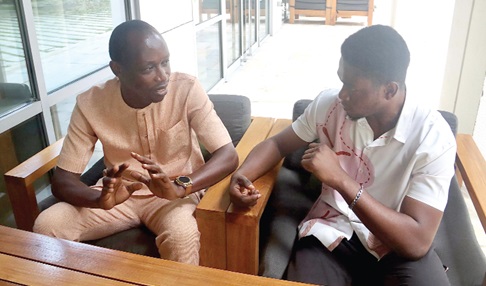In today's knowledge-driven world, the value of a nation is increasingly measured by its ability to collect, preserve and disseminate its intellectual assets.
While Ghana boasts a rich cultural heritage, vibrant history and diverse systems of knowledge, the country has long lacked a single, comprehensive and state-supported encyclopaedia that encapsulates its identity.
Most available resources remain fragmented or commemorative, offering only glimpses into the nation's wealth of information.
This gap has persisted for decades, even as other nations, such as the United Kingdom and China, have established authoritative references like the Encyclopedia Britannica and Encyclopedia of China.
Past attempts
Ghana has seen earlier efforts to document its knowledge and history. Notable among these is the Ghana Handbook, also known as the Ghana Year Book, published periodically since the 1950s and 1960s. Though not encyclopaedic in format, it has offered valuable insights into the country's political, economic and cultural landscape.
In the 1960s, Dr W.E.B. Du Bois, under the auspices of Dr Kwame Nkrumah, initiated the Encyclopaedia Africana Project in Ghana to document African history from an African perspective.
Although it did not achieve its full potential, it remains an inspiring symbol of Afrocentric scholarship.
Another example is the Ghana@50 Encyclopaedia, published in 2007 to mark the country's golden jubilee. The commemorative volume, however, was not widely distributed and has not been updated.
In recent years, digital platforms, institutional archives and private and academic initiatives have developed online databases that serve encyclopaedic purposes and help preserve Ghanaian knowledge.
Yet none of these efforts have resulted in a sustained, unified national encyclopedia effort.
Encyclopedia Ghanatta
It is against this backdrop that a Ghanaian librarian is spearheading a landmark initiative to compile the country’s first comprehensive national encyclopaedia that will serve as an authoritative reference on all aspects of Ghana.
Dubbed “Encyclopaedia Ghanatta”, the ambitious project is designed to address long-standing gaps in the country’s knowledge organisation and information systems by documenting Ghana’s history, culture, geography, politics, economy and social dynamics.
It will also explore the country’s scientific contributions, international relations, spiritual life and local knowledge systems. Its ultimate goal is to encapsulate the nation’s past, present and evolving identity in a single, authoritative work.
Structured as a multidisciplinary initiative, Encyclopaedia Ghanatta will include practical details such as the meanings of town names, migration patterns, flora and fauna, population statistics, trade activities, agricultural practices and religious organisations.
The project, which is expected to be completed within the next two years, seeks not only to preserve and celebrate Ghana’s rich heritage but also to serve as a foundational educational resource to inform research, policymaking and public awareness.
Ultimately, the initiative aspires to empower national development by promoting effective knowledge management, enhancing national productivity and fostering a more informed citizenry.
At a time when digital access, research integrity and cultural ownership are paramount, this project signals a turning point for Ghana's knowledge infrastructure.
A decade in the making
In an interview with the Daily Graphic, the Chief Executive Officer (CEO) of Encyclopaedia Ghanatta, Israel Yao Dzantor, revealed that his research showed only two African countries—Morocco and Ethiopia—had successfully published national encyclopaedias.
He mentioned that Ghana’s own encyclopaedic effort under the nation’s first president, Dr Kwame Nkrumah, ended after the first volume of the Encyclopaedia Africana, a reality that inspired him to undertake the current project.
He disclosed that over the past 10 years, he had gathered thousands of documents from the Public Records and Archives Administration Department (PRAAD), the George Padmore Research Library and individual donors to support the initiative.
Describing the project as a vital national initiative, Mr Dzantor, who is a librarian at the headquarters of the governing National Democratic Congress (NDC), said it is aimed at documenting Ghana’s intellectual, cultural, commercial and administrative history in a comprehensive reference work.
“In this current knowledge-driven age, knowledge has become the new capital for productivity,” he said, adding that Ghana needs to develop its intellectual self-confidence by properly managing and preserving its knowledge assets.
Unique approach
Mr Dzantor acknowledged that his work was not the first attempt to chronicle the essence of the nation.
However, he emphasised that Encyclopaedia Ghanatta distinguishes itself through its context-sensitive approach, scholarly rigour and commitment to developing new theories and uncovering neglected or unexplored areas of Ghanaian knowledge.
He admitted that funding remained a major challenge but expressed optimism that government and corporate institutions would eventually come on board. He stressed that knowledge management must be treated as a national priority.
As part of the project’s corporate social responsibility (CSR), he announced that more than 10 million exercise books, pens and other learning materials would be distributed to schools across the country.
Writer’s email:ddotse18@gmail.com

